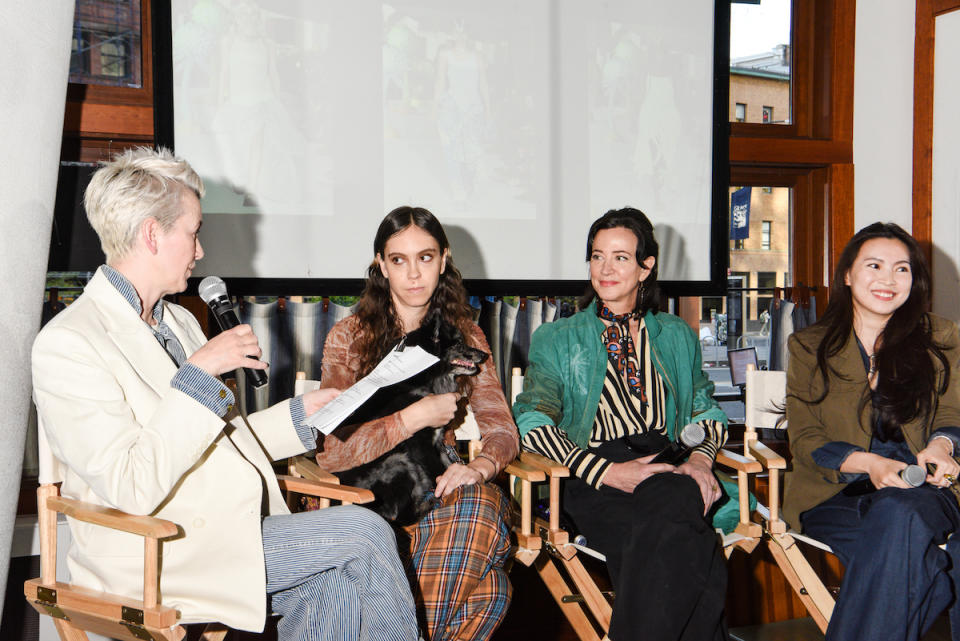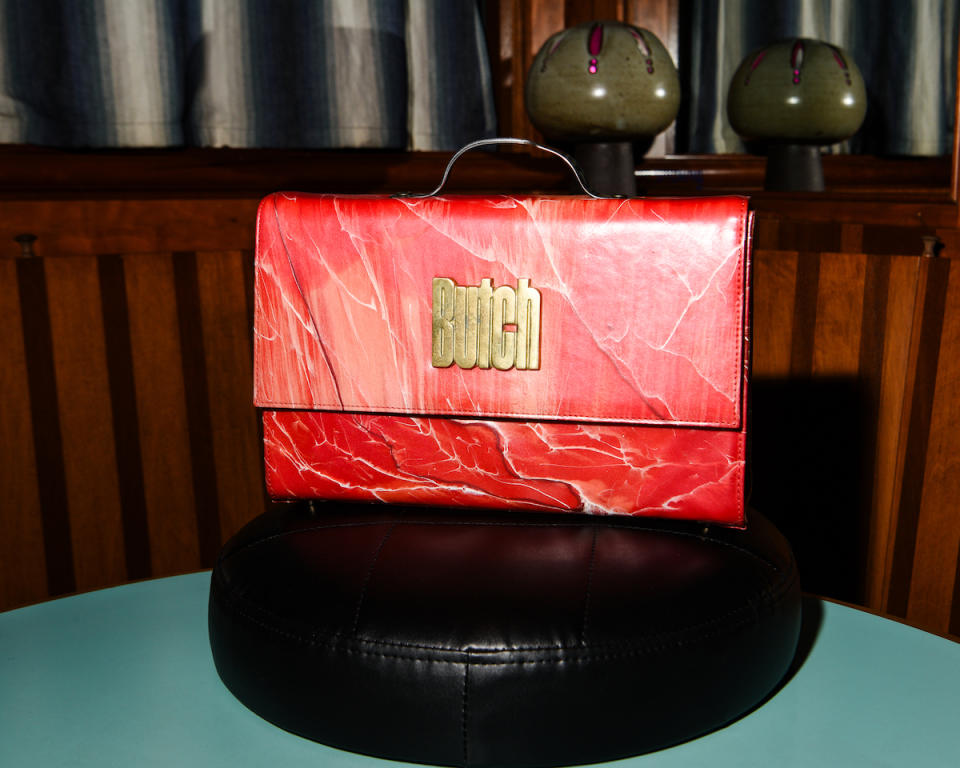Is Mycelium All Hype, No Hope? Experts Weigh In During Earth Day Panel

New York City’s East Village institution, The Standard, kicked off its Spring panel discussions in celebration of Earth Day with Biofabricate, a global network catering to biomaterial innovators.
The evening focused on the necessity of placing sustainability at the forefront of fashion. Moderated by Biofabricate’s CEO Suzanne Lee, who was joined by Collina Strada founder and creative director Hillary Taymour, T?mTex CEO Uyen Tran and The Rootist creative scientist Alison Cutlan, the panel spoke to the growing importance of sustainable biotechnology, the need to replace harmful chemicals and plastics with biological alternatives. The panelists also spoke to the challenges and opportunities that come with working with living materials.
More from Sourcing Journal
“Earth Day is really about reminding ourselves of the importance of environmental conservation and sustainability,” Lee said to the packed room. “It’s about encouraging all of us to come together and to take action for a healthier planet and a brighter future.”

One of the ways women’s wear label Collina Strada is taking action is by working with the Or Foundation in Ghana. The New York City-based brand receives a lot of “random” single-use T-shirts from the non-profit and uses them to create new patterns to upcycle into pieces that “somebody might love,” Taymour said. The creative director said she hasn’t been to the Or Foundation headquarters yet as she’s “terrified” if she goes, she’ll never come back.
“I started out as a horse girl; everything was very important, very rooted in the environment,” Taymour continued. “I had like an epiphany moment in my 30s when I was walking over the Williamsburg bridge and seeing all the trash was everywhere. I was like, if I’m going to be a person that create a product in the world, I need to make sure that it’s doing the best that I can be.”
For Tran, this is why she stopped being a fashion designer and became a materials expert.
Born and raised in Vietnam, Tran shopped at the secondhand markets as a child. Vietnam being one of the world’s major manufacturing hubs, she recalled women in her hometown complaining about long hours, unsafe working environments and toxic chemicals inhaled on the daily.
“It’s kind of heartbreaking for me,” she said. When I came here and saw so many materials thrown away without care, so much waste that’s not going to biodegrade—it might as well end up in my hometown. I wanted to be a part of the solutions and create materials focused on the circular economy. That’s how I switched from being a fashion designer to a textile designer; my childhood really shaped my perspective,” Tran said.
Non-biodegradable waste has become a larger focal point for the beauty industry, and as such, biotechnology-based hair brand The Rootist is trying to remove it from the space by using ancient technologies to unlock new materials.
“That 1950s [plastic] chemistry needs to be replaced with biology and we have to go back to learn how biology works and how some of the ingredients we’ve seen our mothers and our fathers use can be modified to create new ingredients,” Cutlan said, adding that “old processes like fermentation can be used to create better ingredients, through sustainable biotech.”
“There’s a new era starting and it’s really the era of biology, where we’re getting rid of these old polluting chemistries,” she added.
But replacing those old, polluting chemistries will require some hand-holding.
“We need more education of people who are sustainability leaders to help create books, help create education courses to teach people about circularity and about regenerative fabrications,” Taymour said, noting that this may be challenging considering the speed at which these advances are happening.
There’s also a huge problem with the new wave of sustainable fabrics, as they get bought by big brands and then small brands can’t use them anymore, she added.
“It’s a huge corporate greed situation happening when it comes to that, so they can do PR scams that they’re saving the planet,” Taymour continued. “But they’re just holding onto tech so no one else can have it.”
Another scam? Mushroom leather, according to the Collina Strada founder. Considering that the mycelium “tears when sewn together” and is usually backed by plastic—not to mention the tech ventures that fund material innovation push brands to roll out products before they’re necessarily ready—it’s a complex space to be in.

This is why 100 percent bio-based materials and green chemistry is the “only solution,” according to Tran, who showcased a prosciutto-esque purse made with T?mTex’s Series M engineered leather sourced from mushroom waste for Dauphinette during the panel.
Lee, too, came to mycelium’s defense.
“There are hundreds of scientists around the world working on [mycelium materials] and I think it’s a very, very promising material,” she said. “But we need to remember that this is a whole new generation of materials. We didn’t get Lycra in two years; it took 10 years to develop and several more years to commercialize, and it has been on an iterative journey for 60 years. We need to give these innovators time to perfect what they’re making.”
Solve the daily Crossword

